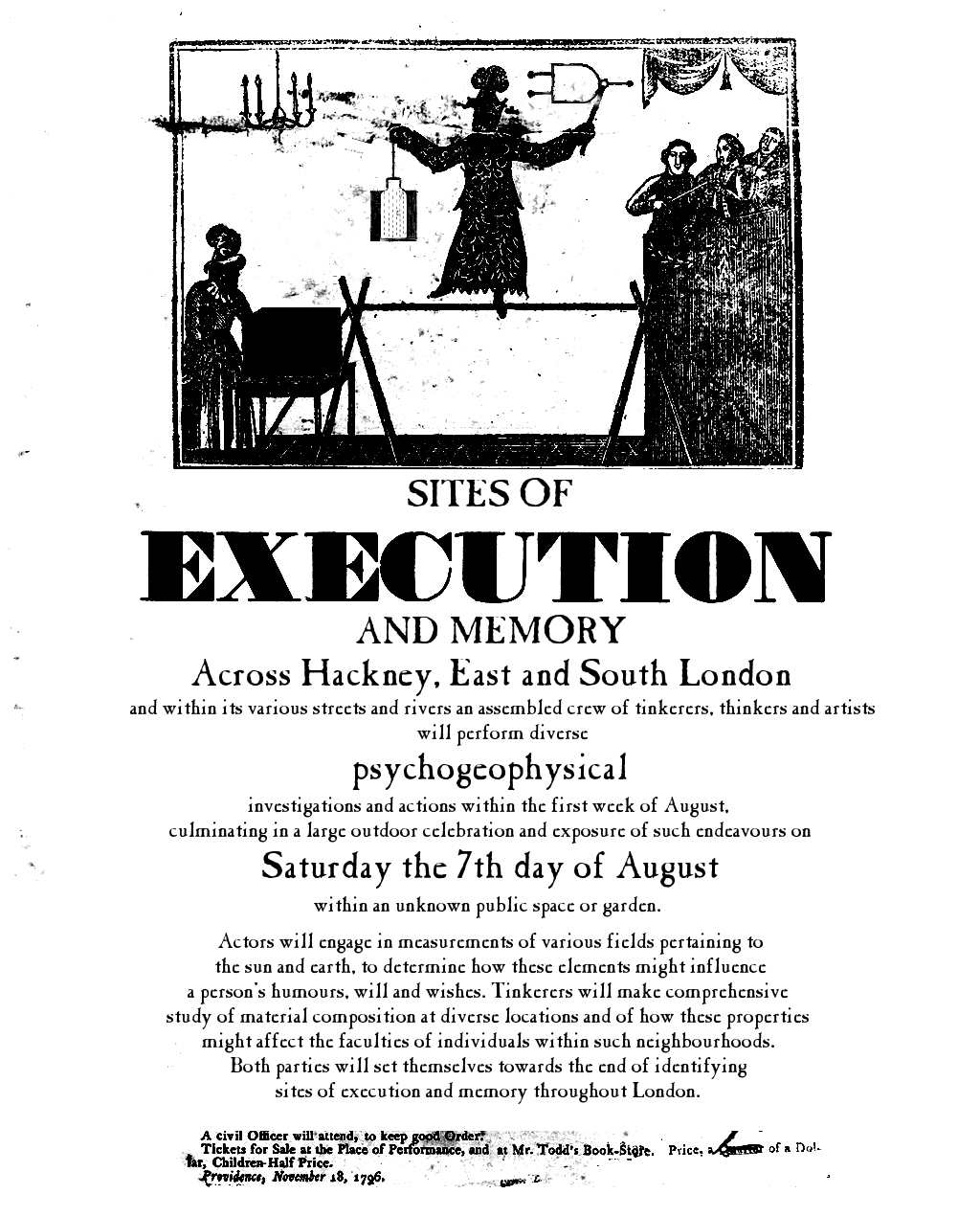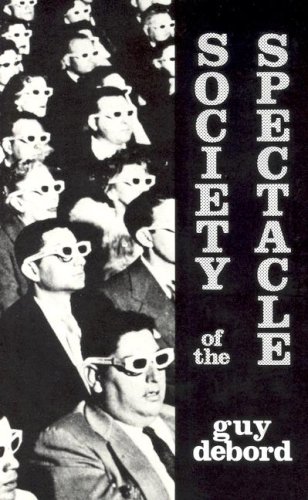Tiqqun journal, 1-2 (1999-2001) [French/transl.]
Filed under journal | Tags: · anarchism, capitalism, critique, cybernetic capitalism, cybernetics, information society, lettrism, networks, philosophy, politics, situationists, technology


Tiqqun was a French journal that published two issues in 1999 and 2001. The authors wrote as an editorial collective of seven people in the first edition and went uncredited in the second edition.
“Tiqqun’s poetic style and radical political engagement are akin to the Situationists and the Lettrists. Tiqqun is relatively accepted in the radical, philosophical milieu, the Situationist and post-Situationist groups, in the ultra-left, the squat and autonomist movements, as well as among some anarchists. Tiqqun is strongly influenced by the work of the italian philosopher Giorgio Agamben.” (Wikipedia)
Reading The Cybernetic Hypothesis (article by Joss Winn, July 2010)
Tiqqun at Bloom0101.org (from IA)
Tiqqun.info
Issue 1 (French, more formats at IA)
Issue 2 (French, more formats at IA)
Trans. of selected texts from issues 1 and 2 (English)
Trans. of selected texts from issues 1 and 2 (English, German, Italian, Spanish, Greek, Portuguese)
The Psychogeophysics Handbook (2010, draft)
Filed under book | Tags: · code, electromagnetism, media ecology, psychogeography, psychogeophysics, situationists, software, software studies, spectral ecology, technology

With psychogeography easily de ned as a playful examination of the total effects of geography and place on the individual, [“the study of the precise laws and specifi c effects of the geographical environment, consciously organized or not, on the emotions and behavior of individuals.” Guy Debord. Introduction to a Critique of Urban Geography, 1955]. Psychogeophysics extends such research to embrace geophysics, defined as the quantitative observation of the earth’s physical properties, and its interaction with local spectral ecologies. Geophysics equally encompasses archaeological geophysics, with measurement of such properties allowing for the mapping of previous traces through techniques of particle/wave detection and data forensics.
This extension of psychogeography into geophysics implies a collision between interpretation (fi ction) and measurement, with Psychogeophysics proposed as a novel discipline that bridges any such distinction through the medium of code, and offers a speculative take on the future of code as an uncovering of its locative (diagnostic) potentials leading to a new phase of software studies.
By anonymous
20 July 2010
authors
article about psychogeophysics (Anthony Iles, Mute)
Guy Debord: Society of the Spectacle (1967–) [FR, EN, NL, GR, DE, IT, ES, TR, BR-PT, RO, SR, HU, LT, PL, CZ]
Filed under pamphlet | Tags: · activism, capitalism, consumerism, everyday, life, mass media, situationists, spectacle, spectatorship

“The Das Kapital of the 20th century. An essential text, and the main theoretical work of the situationists. Few works of political and cultural theory have been as enduringly provocative. From its publication amid the social upheavals of the 1960’s up to the present, the volatile theses of this book have decisively transformed debates on the shape of modernity, capitalism, and everyday life in the late 20th century.
Self-proclaimed leader of the Situationist International, Guy Debord was certainly responsible for the longevity and high profile of Situationist ideas, although the equation of the SI with Guy Debord would be misleading. Brilliant but autocratic, Debord helped both unify situationist praxis and destroy its expansion into areas not explicitly in line with his own ideas. His text The Society of the Spectacle remains today one of the great theoretical works on modern-day capital, cultural imperialism, and the role of mediation in social relationships.”
Publisher Buchet-Chastel, Paris, Nov 1967
175 pages
Wikipedia (EN)
La Société du Spectacle (French, 1967; HTML)
Society of the Spectacle (English, trans. Fredy Perlman and Jon Supak, 1970; HTML)
De spektakelmaatschappij (Dutch, trans. Jaap Kloosterman and René van de Kraats, 1976/2001, updated on 2019-11-8)
Η Κοινωνία του Θεάματος (Greek, trans. Panos Tsachageas and Nikos B. Alexiou, 1977, updated on 2019-11-8)
Die Gesellschaft des Spektakels (German, trans. Jean-Jacques Raspaud, 1978)
La societa dello spettacolo (Italian, trans. Paolo Salvadori, 1979)
Society of the Spectacle (English, trans. Donald Nicholson-Smith, 1994; HTML)
La sociedad del espectacul (Spanish, trans. Rodrigo Vicuña Navarro, 1995)
Gösteri toplumu ve yorumlar (Turkish, trans. Ayşen Ekmekçi and Okşan Taşkent, 1996, added on 2012-12-27)
A sociedade do espetaculo (BR-Portuguese, trans. Estela dos Santos Abreu, 1997)
Societatea spectacolului. Comentarii la societatea spectacolului (Romanian, trans. Ciprian Mihali and Radu Stoenescu, 1998)
La sociedad del espectacul (Spanish, trans. José Luis Pardo, 1999)
Η Κοινωνία του Θεάματος (Greek, trans. Sylvia, 2000, added on 2019-11-8)
Society of the Spectacle (English, trans. Ken Knabb, 2005; new ed., annotated, 2014, HTML, PDF, EPUB, added on 2019-11-12)
Društvo spektakla (Serbian, trans. Aleksa Golijanin, 2003/2012; HTML, added on 2017-7-27)
Spektákulum társadalma (Hungarian, trans. Miklós Erhardt, 2006, updated on 2019-11-8)
Spektaklio visuomenė (Lithuanian, 2006, added on 2019-11-8)
Społeczeństwo spektaklu oraz Rozważania o społeczeństwie spektaklu (Polish, trans. Mateusz Kwaterko, 2006, updated on 2019-11-8)
Společnost spektáklu (Czech, 2007, updated on 2019-7-21)
La sociedad del espectacul (Spanish, trans. Colectivo Maldeojo, 2009)
Societatea spectacolului (Romanian, trans. Cristina Săvoiu, 2011, added on 2015-11-29)

